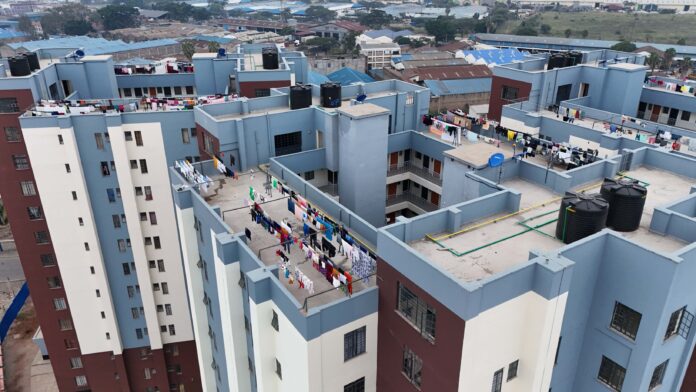By Ian Maleve
The European Investment Bank (EIB) has committed Sh3.2 billion towards the development of affordable housing in Nairobi and Kiambu counties, marking a significant boost to Kenya’s efforts to bridge the housing deficit and provide decent shelter for low and middle-income earners.
This funding, part of the bank’s broader strategy to support sustainable urban development in Africa, will be channelled into projects that aim to increase the supply of quality housing at accessible prices.
The investment is expected to directly support the construction of over 3,000 housing units, as well as create jobs and stimulate economic activity within the real estate and construction sectors.
According to officials familiar with the project, the funds will be utilised in collaboration with local developers and housing finance institutions to ensure that the projects are aligned with the government’s Affordable Housing Programme.
Particular attention will be given to green and climate-resilient construction practices, promoting long-term environmental sustainability alongside economic development.
The housing units will primarily target informal settlements and low-income neighbourhoods in Nairobi and Kiambu, where the demand for affordable housing is especially high.
The development is also expected to ease the pressure on overstretched urban infrastructure, by promoting planned settlements equipped with essential amenities such as water, electricity, and access roads.
The move aligns with Kenya’s Vision 2030 and the Bottom-Up Economic Transformation Agenda (BETA), both of which emphasize inclusive urban growth and improved living conditions for all Kenyans.
Stakeholders in the housing sector have welcomed the investment, citing the importance of international financial support in closing the estimated two million housing unit gap in the country.
The EIB’s investment comes at a time when Kenya is ramping up efforts to attract both local and international investors into the affordable housing space, with the government continuing to offer incentives such as tax reliefs, serviced land, and infrastructure support to developers.
This latest funding is expected to not only accelerate housing delivery but also contribute to long-term economic empowerment through job creation and increased access to dignified living conditions.



















